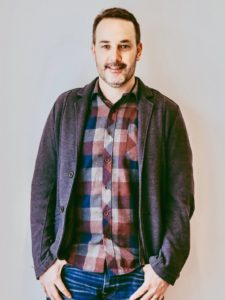Postdoctoral Fellow, Planetary Health & Education
Research Fellow

James Stinson is a Postdoctoral Fellow in Planetary Health Education at York University, cross appointed to the Faculty of Education and the Dahdaleh Institute of Global Health Research. He is a cultural, environmental and public anthropologist with a PhD in Anthropology from the University of Toronto. His research explores intersections of Indigenous-led conservation, digital media and technologies, and nature-based recreation in efforts to preserve biodiversity and promote planetary health.
He is currently the Principal Investigator of two SSHRC-funded research projects, and Co-Principal Investigator of the York-funded “Partnership for Youth and Planetary Wellbeing.” Building on over a decade of engaged research with Indigenous Maya communities and conservation organizations in Belize, his current research examines how digital surveillance technologies and artificial intelligence – including the Spatial Monitoring and Reporting Tool (SMART) – are impacting environmental governance and shifting relations of power in and around parks and protected areas. A second project engages Indigenous youth in Belize and Canada to understand their experiences of climate change and support their efforts to promote planetary health and well-being. In addition to academic publications in Geoforum, Environment and Planning, and Challenges, he has written for The Conversation, the Canadian Climate Institute, Mountain Life, Wildlife Australia, and facilitated the production of Indigenous films for the United Nation’s Youth Climate Report.
You may also be interested in...
Reclaiming Indigenous History and Culture: Pray, Share, Cry, Laugh
Originally published by SeeChange Initiative (9 February 2024) By Rachel Kiddell-Monroe, CEO of SeeChange Don Burnstick is a 61-year-old Cree comedian and motivational speaker, with long black hair and fingers that are covered with rings. He knows how ...Read more about this Post
Hot off the Press – Complex Adaptive Systems-Based Conceptual Framework for Modeling the Health Impacts of Climate Change
Harmony Unveiled: Navigating Climate Change's Impact on Health Dahdaleh visiting faculty fellow Byomkesh Talukder and his research team, including Dahdaleh members James Orbinski, Ali Asgary Martin Bunch, Eunice Choi, and Mohammadali Tofighi, recently published an ...Read more about this Post
Recap — Agent-Based Modelling of the Impacts of Climate Change
On October 5, Dahdaleh postdoctoral research fellow Mohammadali Tofighi introduced computer modelling approaches and applications for modelling health impacts caused by climate change in Malawi. The modelling process can be abstract. Mohammadali discussed a few ...Read more about this Post
